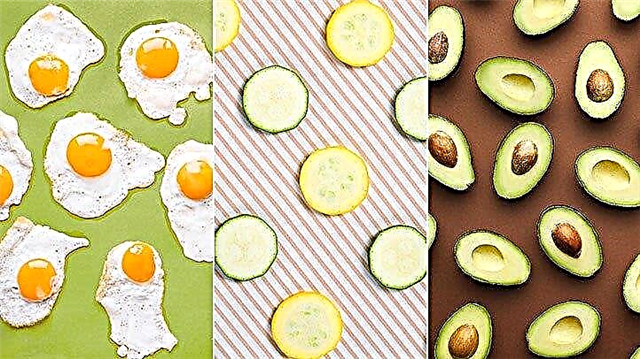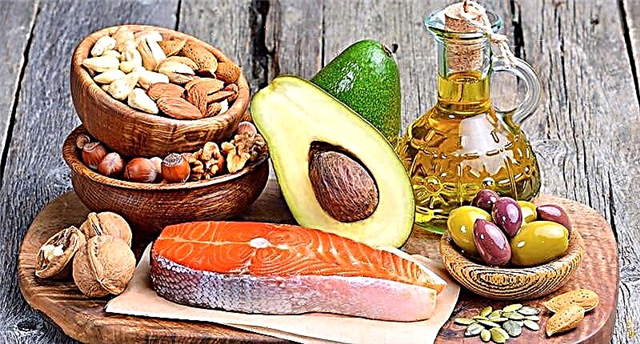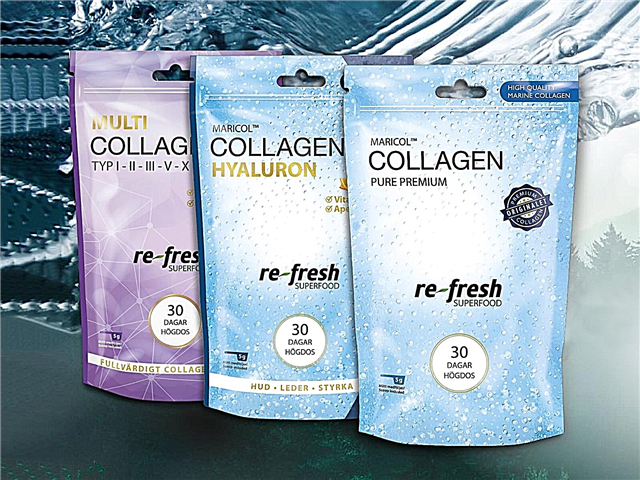If you follow the trend in healthy eating, then you probably noticed the rapidly growing popularity of collagen supplements. We decided to carefully study this issue, and after studying it, we came to the conclusion that we, too, should not stand aside - especially since this does not contradict the principles of O Keto. About Keto Foods has entered into an agreement with the Swedish company Re-fresh Superfoods for the exclusive distribution of their products in Russia and the CIS, and soon we will have their main product on sale - premium quality hydrolyzed collagen. We tell you what it is, who should add collagen to their diet and why, and what scientific evidence is there for its benefits.
Collagen is the most abundant protein in our body, which provides firmness and elasticity to the tissues of the skin, bones, cartilage, joints, nails and mucous membranes. It is the basis of connective tissue and makes up one third of all proteins in the body and about 80% of the dry mass of the skin. Like all proteins, collagen consists of amino acids and is synthesized from so-called polypeptides - natural compounds composed of ten or more free amino acid residues connected by peptide bonds. A typical collagen molecule consists of three different types of polypeptide chains (α-helices), twisted in the form of a right triple helix. Collagens form strong, insoluble filaments (fibrils) that are part of the extracellular matrix (a substance that fills the space between cells) and connective tissues. Fibril bundles form collagen fibers.

Under the influence of a number of factors - for example, age and high physical activity - collagen can be destroyed, which is fraught with accelerated aging of the skin and the occurrence of various diseases associated with the fragility of joints and bones and a decrease in the elasticity of tendons. In addition, a lack of collagen, which is part of the intestinal mucosa, can lead to digestive problems.
Where does collagen come from?
Collagen is synthesized by the body itself from ingredients that we get from food. When collagen is synthesized, the body - primarily connective tissue cells, fibroblasts - combines amino acids from protein-rich foods such as meat, poultry, fish and seafood, eggs, dairy products and legumes. The collagen synthesis process also requires vitamin C, zinc, copper, selenium and other minerals. Vitamin C is obtained from foods such as lemons, bell peppers, tomatoes, broccoli and green leafy vegetables. The minerals you need are found in red meat, seafood, nuts, and legumes. But not all people have the process of collagen synthesis going on equally well and actively. With age, the body decreases collagen production, in addition, poor nutrition can lead to a decrease in the level of collagen in the body. In addition, collagen synthesis can also decrease under the influence of external factors: sun exposure, smoking, environmental pollution.
“As you age, your body can no longer absorb or synthesize nutrients as efficiently,” says Dr. Elizabeth Bradley, Medical Director of the Center for Functional Medicine at the Cleveland Clinic. “To make sure your body is getting enough ingredients to make collagen, you may need to change your diet or take nutritional supplements.”
American dermatologist Dr. Whitney Bowe describes collagen as “protein harnesses in the skin”. In youth, they are taut, but over the years they begin to weaken, which leads to looseness and dryness of the skin. Starting in the third decade, our skin loses about 1% of collagen per year. “The concept of collagen supplementation, especially given the body's declining production of collagen with age, is very attractive from a dermatologist's point of view,” says Dr. Bowe.
A good external source of "building blocks" of collagen can serve as a rich broth of bones - beef, pork, chicken and fish. But cooking it takes time and patience - it takes one or two days to boil bones over low heat. It is interesting that such a decoction, which strengthens ligaments and joints, is included in the obligatory diet of many professional athletes - for example, basketball players of the LA Lakers club. But if you want to make such a "collagen broth" yourself, then you should pay careful attention to the quality of the original ingredients. Dr. Bradley recommends using organically grown bones to avoid antibiotic, pesticide and other toxin residues.
Another way to improve collagen synthesis is through special nutritional supplements - collagen hydrolysates. This is a relatively new product, but its popularity is growing at a frantic pace. Americans are projected to spend $ 293 million in 2020 on collagen supplements - nearly 6 times more than in 2014. By 2025, the global collagen market is projected at $ 6.5 billion.
There are two main types of collagen supplements, depending on the raw materials used in their manufacture: animal collagen and marine (or fish) collagen. Animal collagen is produced from cartilage, bone and dermal tissues of poultry and cattle. Marine - from the skin and bones of fish. In order for the drug to be absorbed better, it is hydrolyzed to peptide chains - smaller molecules that can more easily overcome the intestinal barrier and enter the circulatory system. In theory, the body can use the absorbed collagen where it needs to be “repaired” the most.
Marine collagen is considered to be more effective and easily digestible, but it is also noticeably more expensive than animal. On the other hand, marine collagen is type I, while other types of collagen are found in animals. Therefore, to achieve the maximum and complex effect, different types of collagen should be combined with each other.
There are many different collagen supplements on the market now in different forms: tablets, capsules, powder, drinking collagen, etc. In terms of price-performance ratio, powdered collagen is the most profitable option. It can be taken by dissolving the recommended dose (usually 5-10 g per day) in water, or adding it to juices, smoothies, yoghurts, coffee, etc.
Pure collagen supplements are considered safe and without any known side effects. But the rapid growth of their popularity has a downside: more and more new suppliers and manufacturers with a very wide range in price and quality are constantly appearing on the market. The hides, hooves and bones of animals used in the production of collagen can accumulate heavy metals and other toxins. A test conducted by the American organization ConsumerLab found that one of 14 samples of collagen supplements had elevated cadmium levels.
In addition, dermatologists and consumer organizations have raised concerns that collagen produced from cattle can transmit diseases such as BSE (mad cow disease). And although such cases have not yet been recorded, experts advise to carefully consider the choice of suppliers and manufacturers, choosing companies with a good reputation, using high-quality raw materials and, preferably, third-party certification.
Collagen types
Currently, 28 types of collagen have been described, which are encoded by more than 40 genes.They differ from each other in amino acid sequence, as well as in the degree of modification - the intensity of hydroxylation or glycosylation. Common to all collagens is the existence of 1 or more triple helix domains and their presence in the extracellular matrix. More than 90% of all collagen of higher organisms is accounted for by collagens of types I, II, III and IV.
Most collagen supplements available on the markets contain type I, II, or III collagen, or a combination of both. Multi Collagen from Re-Fresh Superfoods also contains collagen types V and X.
Collagen type I
The most abundant type of collagen in the human body. Most of all is found in the skin, but also in hair, nails, internal organs, bones, connective tissue and ligaments. In addition, type I collagen is an indispensable component of the extracellular matrix of the heart.
Collagen type II
Most type II collagen is found in various types of cartilage. The highest concentration is in the so-called hyaline cartilage - up to 95%. It is a type of cartilage that absorbs shock and provides a sliding surface in the joints, between the vertebra and the disc, or around the ribs. Cartilage damage and problems are often felt like joint pain, stiffness, and inflammation. With age, cartilage wears out faster than it can be repaired, and the result can be, for example, osteoarthritis. Improving the quality of the cartilage means that the wear is not as rapid.
Collagen type III
Collagen type III is the second largest group of collagen in the body and is included as a structural element in the walls of hollow organs such as blood vessels, stomach, intestines, uterus, lungs, it is also part of the bone marrow. In addition, it is usually found in other organs along with type I and interacts with it, including in the extracellular matrix of the heart.
Collagen type V
Collagen type V plays an irreplaceable role in the formation of fibrils - collagen fibers - by other types of collagen - I and III. Type V collagen is found at its highest concentration in the cornea, where it controls the size of collagen fibers to maximize light transmission. This type of collagen is also found in hair, is important for bone marrow and cell surface and contributes to the formation of bone matrix and extracellular matrix of muscles, liver, lungs and placenta.
Collagen type X
Type X collagen differs from previous types of collagen in that it is network-forming. It promotes calcification of bones, is part of the extracellular matrix of cartilage and growth plates of bones and cartilage, and helps restore bones after injuries.
Scientific research and evidence of benefits
Since collagen supplements are a relatively new product on the market, scientific studies on their effectiveness are quite small and limited in number of participants. However, the scientific evidence that is available to date looks quite encouraging and clearly indicates a tangible positive effect from taking collagen supplements. Here are some studies on collagen's effects on various health factors:
For skin
A 2014, randomized, double-blind study (i.e. when neither participants nor scientists know who is receiving the real drug and who is receiving the placebo), a study in which 69 women aged 35-55 years took part, showed that the daily taking 2.5-5 g of collagen for 8 weeks led to an improvement in skin elasticity.
A 2015 double-blind study of 105 women aged 24-50 with signs of cellulite showed that daily intake of 2.5 g of collagen for 6 months resulted in a reduction in skin irregularities and visible cellulite.
A 2016 study of 60 women aged 46-69 showed that a daily intake of 5 g of marine collagen for 8 weeks led to a noticeable reduction in the signs of facial aging, incl. improving skin biomechanics and reducing wrinkles.
A 2012 study of 26 women with visible signs of aging on their face showed that daily intake of 1 g of chicken collagen per day resulted in a 13% reduction in dry skin, 13% in wrinkles, and an increase in hemoglobin. by 15% and improve blood circulation in the skin.
Published in 2019, a systematic analysis of research into dermatological applications of collagen nutritional supplements concluded that “the results are promising for short- and long-term use in wound healing and prevention of skin aging. Collagen nutritional supplements increase skin elasticity, hydration and collagen density in the dermis. ” A total of 11 studies were analyzed, in which 805 people participated.
For bones and joints
A 2008 randomized study of 147 athletes (72 men and 75 women) showed that taking collagen significantly reduced joint pain. The participants were randomly divided into 2 groups - in one of them, athletes received 10 g of collagen per day for 24 weeks, and in the other - a placebo. At the end of the course, the participants in the group receiving collagen recorded a statistically significant reduction in joint pain at rest, while walking, running, standing, lifting and carrying objects. The result was especially significant for participants with knee pain.
A 2004 double-blind study of 274 people showed a positive effect of taking type II collagen in patients with rheumatoid arthritis.
A 2006 review of the available medical research on hydrolyzed collagen showed that regular use of this dietary supplement can improve the condition of patients with osteoarthritis and other joint diseases.
A 2014 analysis of 60 studies on the efficacy of hydrolyzed collagen at the University of Barcelona concluded that the supplement “helps to reduce and prevent joint pain, decreased bone density and skin aging”.
For muscles
A 2015 German study of 53 older men with sarcopenia (loss of muscle tissue with aging) found that participants who combined a daily intake of 15 grams of collagen with athletic training 3 times a week showed greater gains in muscle mass and loss adipose tissue versus the placebo-training group.
For wound healing
A 2006 study of 89 patients with grade II, III, and IV pressure ulcers found that patients who received concentrated collagen concentrate for 8 weeks experienced twice the healing of pressure ulcers compared with patients who received placebo. In addition, both groups received the standard treatment in such cases.
To maintain blood sugar levels
A 2016 study by Canadian scientists showed consistently low glycine levels among patients with type II diabetes. Because glycine is one of the main amino acids that make up collagen (it makes up about a third of its mass), then taking this dietary supplement can help stabilize blood sugar levels, which is especially important for diabetics.
Long term strategy
If collagen supplements are helping you and you see signs of improvement in your skin or joints, then expect these positive effects to last only when you take the supplements. Unfortunately, you cannot “gorge yourself on collagen for the future”, because our body not only synthesizes collagen, but also breaks it down with the help of a special enzyme - collagenase. Thus, in our body there is a constant "collagen circulation" - part is destroyed, and part is synthesized again, or added from the outside.On the net you can find many different recommendations for the "correct" collagen intake - usually courses designed for 2-3 months with a month break. It is difficult to say how correct these recommendations are, the issue has not been sufficiently studied yet. But if external collagen supplements are effective for you and you are interested in long-term improvement, then experts say it is worth taking for the rest of your life.
Buy collagen with free worldwide shipping in O Keto SHOPBuy About Keto products online - delivery in Russia
Read also:
Yulia Efimova, Kobe Bryant, All Blacks - how world sports stars give up sugar and carbohydrates
Intermittent fasting for beginners
Ketones for inflammation and pain
Fat metabolism protects the body from sugar damage
Useful starch: it is still there ... and we really need it!
Erythritol is sweet but not nasty











